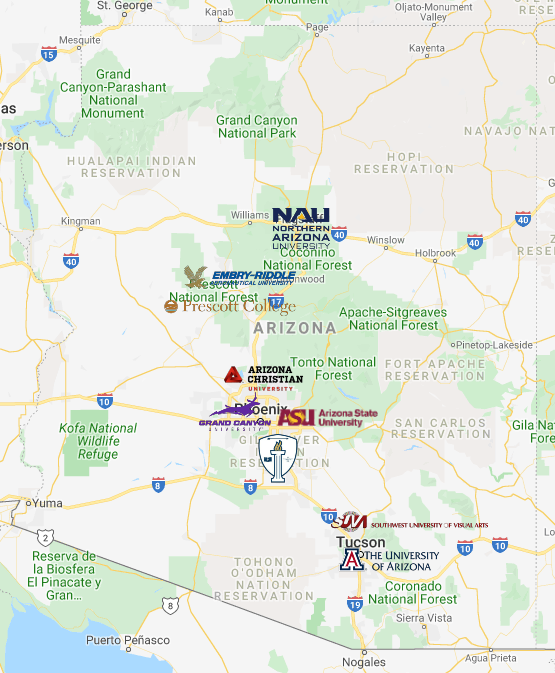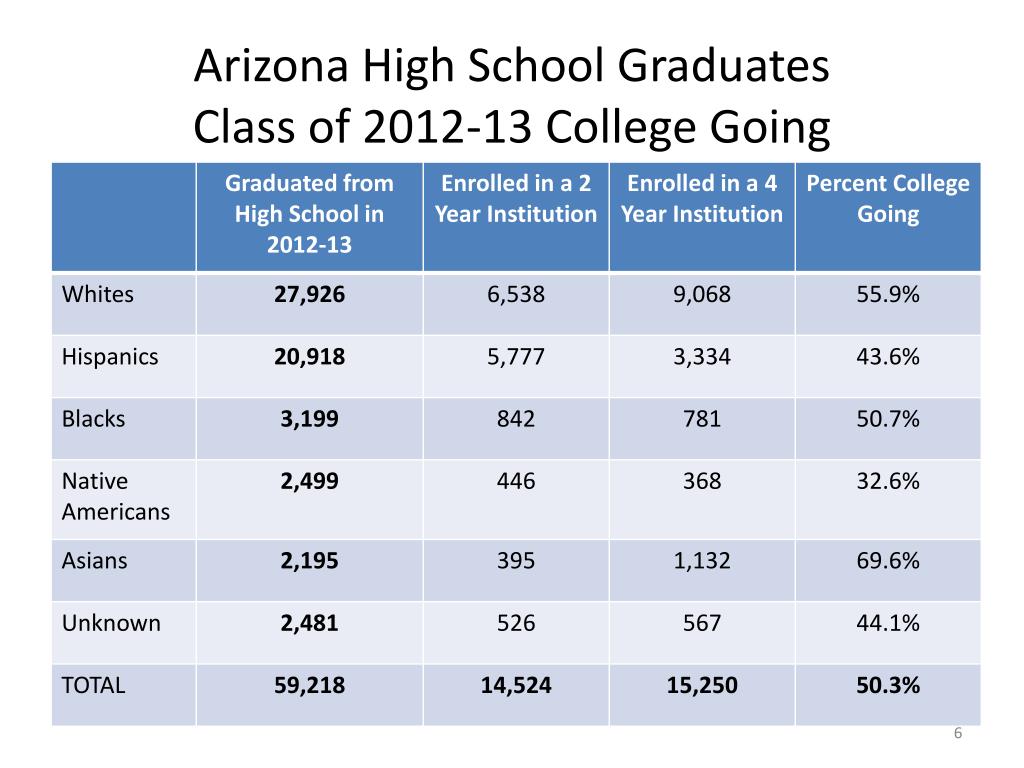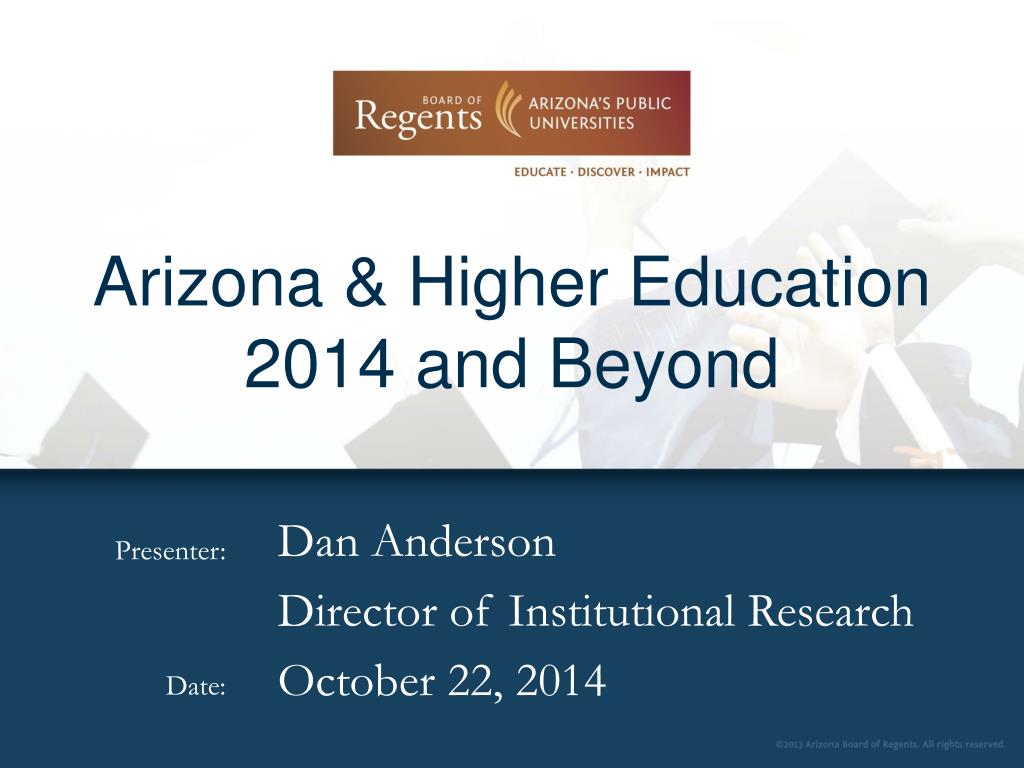Navigating Arizona’s Higher Education Landscape: A Comprehensive Guide to Colleges and Universities
Related Articles: Navigating Arizona’s Higher Education Landscape: A Comprehensive Guide to Colleges and Universities
Introduction
With enthusiasm, let’s navigate through the intriguing topic related to Navigating Arizona’s Higher Education Landscape: A Comprehensive Guide to Colleges and Universities. Let’s weave interesting information and offer fresh perspectives to the readers.
Table of Content
Navigating Arizona’s Higher Education Landscape: A Comprehensive Guide to Colleges and Universities

Arizona, a state renowned for its diverse landscapes and vibrant culture, also boasts a robust higher education system. From prestigious research universities to specialized community colleges, the state offers a wide array of academic options to cater to diverse student aspirations. This comprehensive guide aims to provide a detailed overview of Arizona’s higher education landscape, using a map as a visual aid to highlight the geographical distribution of institutions and their unique offerings.
A Visual Representation of Arizona’s Educational Hubs
A map of Arizona’s colleges and universities serves as a valuable tool for prospective students and their families. It provides a clear visual representation of the state’s educational infrastructure, allowing individuals to quickly identify institutions in their desired location or proximity to specific areas of interest. This map can be accessed online through various resources, including official state websites, higher education directories, and university websites.
Understanding the Diverse Educational Landscape
Arizona’s higher education landscape is characterized by a diverse range of institutions, each with its own unique strengths and specialties.
Public Universities:
- Arizona State University (ASU): Located in Tempe, ASU is the largest public university in the United States, known for its innovative academic programs, research excellence, and commitment to student success.
- University of Arizona (UA): Situated in Tucson, UA is a leading research university with a strong emphasis on science, technology, engineering, and medicine.
- Northern Arizona University (NAU): Located in Flagstaff, NAU is a comprehensive university with a focus on sustainability, environmental studies, and Native American culture.
- Arizona State University Polytechnic Campus: This campus, located in Mesa, offers a unique blend of academic and technical programs, focusing on applied learning and industry partnerships.
Private Universities:
- University of Phoenix: A for-profit university with multiple locations across Arizona, offering a wide range of online and on-campus programs for working adults.
- Grand Canyon University (GCU): Based in Phoenix, GCU is a private Christian university with a strong emphasis on faith-based education and community engagement.
- Prescott College: Located in Prescott, this small, liberal arts college is known for its innovative environmental studies programs and experiential learning approach.
Community Colleges:
- Maricopa County Community College District (MCCCD): The largest community college district in the nation, MCCCD offers a wide range of vocational and transfer programs at 10 colleges across the Phoenix metropolitan area.
- Pima Community College: Located in Tucson, Pima offers a diverse selection of academic and technical programs, providing a pathway to higher education and career advancement.
- Coconino Community College: Situated in Flagstaff, Coconino offers a variety of programs, including associate degrees, certificates, and workforce training.
Exploring the Map: A Deeper Dive into Arizona’s Educational Offerings
By examining the map, one can gain a deeper understanding of the geographical distribution of institutions and their unique offerings:
- Metropolitan Phoenix: The Phoenix metropolitan area is a hub of higher education, with numerous public and private universities, community colleges, and specialized institutions.
- Tucson: Tucson is home to the University of Arizona, Pima Community College, and other institutions, making it a center for research and innovation.
- Northern Arizona: Flagstaff is the location of Northern Arizona University, Coconino Community College, and other institutions, offering a focus on environmental studies, Native American culture, and outdoor recreation.
- Rural Areas: While the majority of Arizona’s colleges and universities are located in urban areas, there are also several institutions serving rural communities, providing access to higher education for students in remote regions.
The Importance of Choosing the Right Fit
The map of Arizona’s colleges and universities is a valuable tool for navigating the state’s higher education landscape. However, it’s crucial to remember that choosing the right institution goes beyond geographical location. Prospective students should consider factors such as:
- Academic Programs: Research the specific programs offered by each institution to ensure they align with your academic goals and career aspirations.
- Faculty and Research: Explore the expertise of faculty members and the research opportunities available at each institution.
- Campus Culture and Environment: Visit campuses, attend events, and talk to current students to get a feel for the campus culture and environment.
- Student Support Services: Assess the availability of academic advising, financial aid, career services, and other support services to ensure a successful college experience.
- Cost and Financial Aid: Consider the tuition and fees associated with each institution, as well as the availability of scholarships, grants, and other financial aid options.
Navigating the Application Process
Once you have identified potential institutions that align with your interests and goals, you can begin the application process. Most colleges and universities have online applications, which typically require:
- Personal Information: Name, address, contact details, and other basic information.
- Academic Records: High school transcripts, standardized test scores (if required), and college transcripts (if applicable).
- Essays and Personal Statements: Written statements that allow you to showcase your skills, experiences, and aspirations.
- Letters of Recommendation: Recommendations from teachers, counselors, or other professionals who can attest to your academic abilities and character.
- Application Fee: A nominal fee may be required to submit your application.
Frequently Asked Questions (FAQs)
Q: What are the admission requirements for Arizona colleges and universities?
A: Admission requirements vary depending on the institution and program. Generally, most colleges require a high school diploma or equivalent, a minimum GPA, and standardized test scores (if applicable). Some institutions may also have specific requirements for certain programs, such as portfolio submissions for art or music programs.
Q: How can I find financial aid opportunities?
A: Most colleges and universities have financial aid offices that can assist students in exploring scholarships, grants, loans, and other forms of financial assistance. The Free Application for Federal Student Aid (FAFSA) is a crucial step in the financial aid process.
Q: What are the best colleges in Arizona for specific majors?
A: Arizona offers a wide range of programs across various fields of study. To determine the best fit for your major, consider factors such as program reputation, faculty expertise, research opportunities, and career placement rates.
Q: What is the cost of attending college in Arizona?
A: The cost of attending college in Arizona varies depending on the institution, program, and residency status. Public universities typically have lower tuition rates for in-state residents compared to out-of-state students. Private universities generally have higher tuition rates.
Tips for Success
- Start early: Begin researching colleges and universities early in your high school career to give yourself ample time to explore options and prepare for the application process.
- Visit campuses: Attending campus tours and open houses can provide valuable insights into the campus culture, academic programs, and student life.
- Connect with current students: Talk to current students to gain firsthand perspectives on their experiences and get advice on navigating college life.
- Seek guidance from counselors and advisors: Utilize the resources available at your high school or community college to get guidance on college applications, financial aid, and career planning.
Conclusion
Arizona’s map of colleges and universities serves as a valuable guide for navigating the state’s diverse higher education landscape. By exploring the map and considering factors such as academic programs, campus culture, and financial aid, prospective students can identify institutions that align with their unique goals and aspirations. With careful planning and preparation, students can embark on a fulfilling and successful college journey in Arizona, a state brimming with opportunities for personal and professional growth.







Closure
Thus, we hope this article has provided valuable insights into Navigating Arizona’s Higher Education Landscape: A Comprehensive Guide to Colleges and Universities. We thank you for taking the time to read this article. See you in our next article!